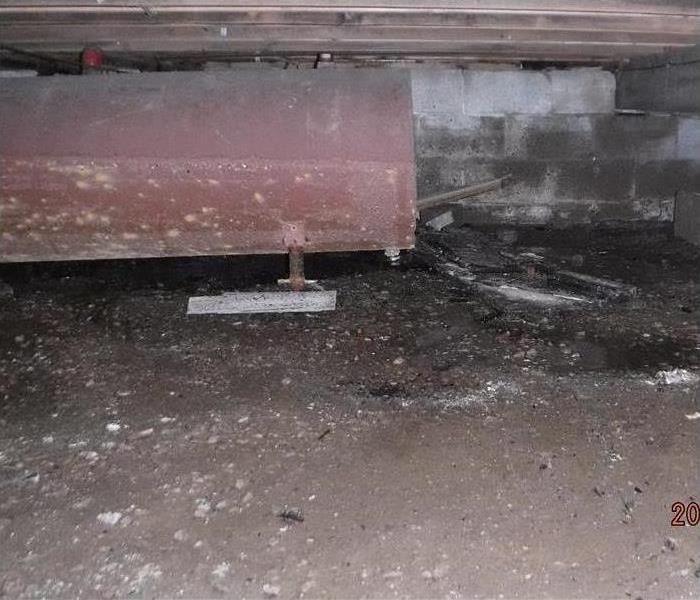3 Types of Damage Your Commercial Building May Suffer After a Flood
4/16/2019 (Permalink)
When your Croyden, PA, building business experiences flooding, the immediate results are usually obvious. Wet carpeting, standing water, and soaked office supplies are likely to be a few issues you might have to resolve. However, the moisture from a flood can continue to cause damage long after the water has been drained away. From warped wooden flooring to black mold, here are a few problems to watch out for in the aftermath of a flood at your business.
1. Water Absorption
Some building materials are porous and can absorb flood water. When this occurs, drywall and insulation can retain both moisture and odor, which can cause the rotting of whatever is contained inside the interior wall. You may want to ask your flood cleanup crew to perform a flood cut, which reveals the inside of any affected wall so the extent of the damage can be assessed and restored.
2. Mold Growth
Black mold and other types of fungi often grow after a flood due to high humidity and the presence of moisture that may remain in an area once it has been closed off. Mold may even develop where you may not spot it right away, such as in your building’s basement or in the corners of plumbing cabinetry. Once mold begins to grow and spread, it can be difficult to remove, so it is wise to have your building inspected after a flood to ensure fungi does not take hold.
3. Lingering Odors
While most types of flood damage are troubling, others are simply offensive, such as lingering odors that might remain afterward. This type of secondary damage can be especially problematic if the source of the flooding came from an outdoor or sewer source. Your storm damage and flood cleanup service technicians can target and eliminate these smells with ozone machines and other technology.
Problems like black mold and excess moisture can cause serious problems in the aftermath of a flood at your Croyden, PA, business. Being vigilant about the presence of secondary damage may help you reduce the cost of future repairs and protect your commercial interests.






 24/7 Emergency Service
24/7 Emergency Service
